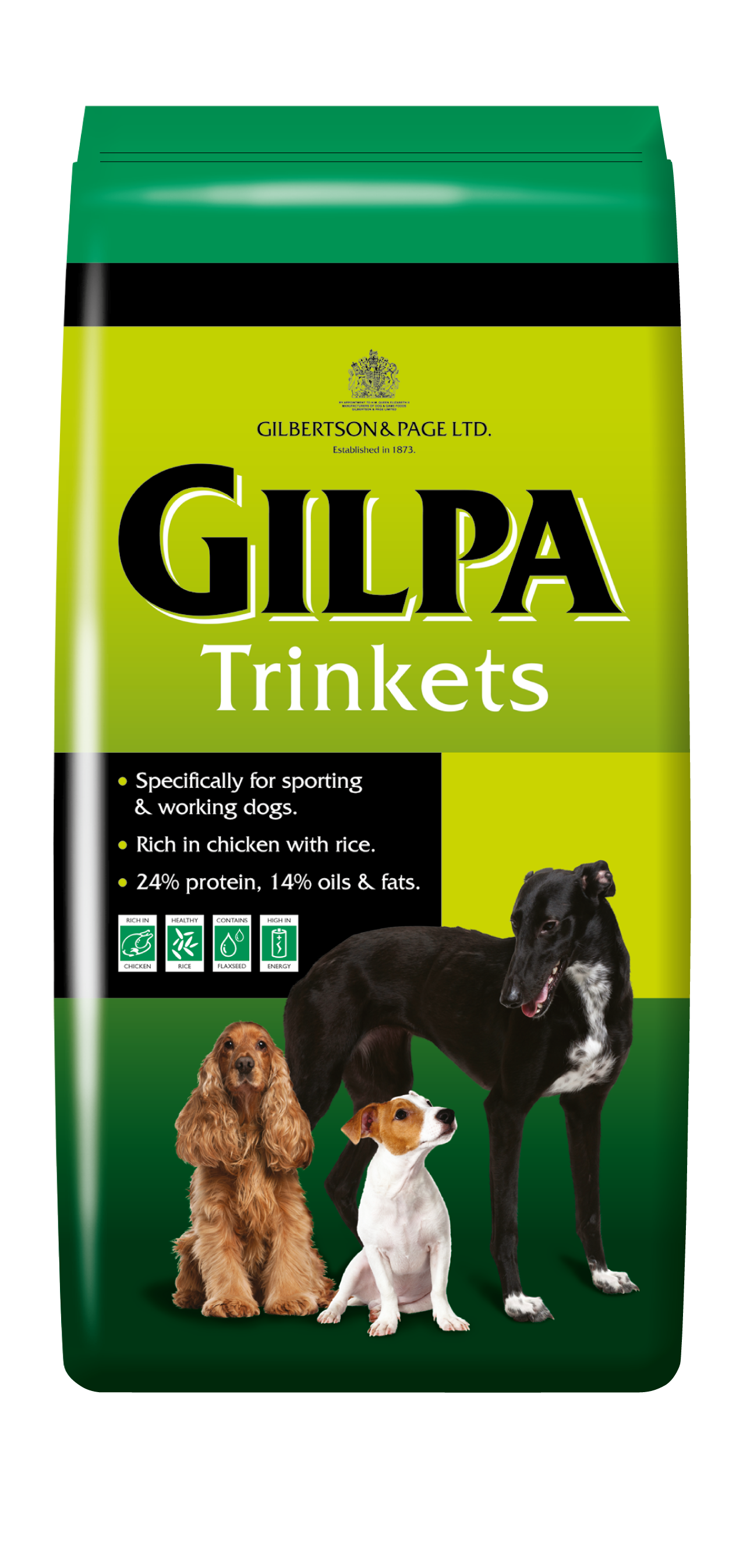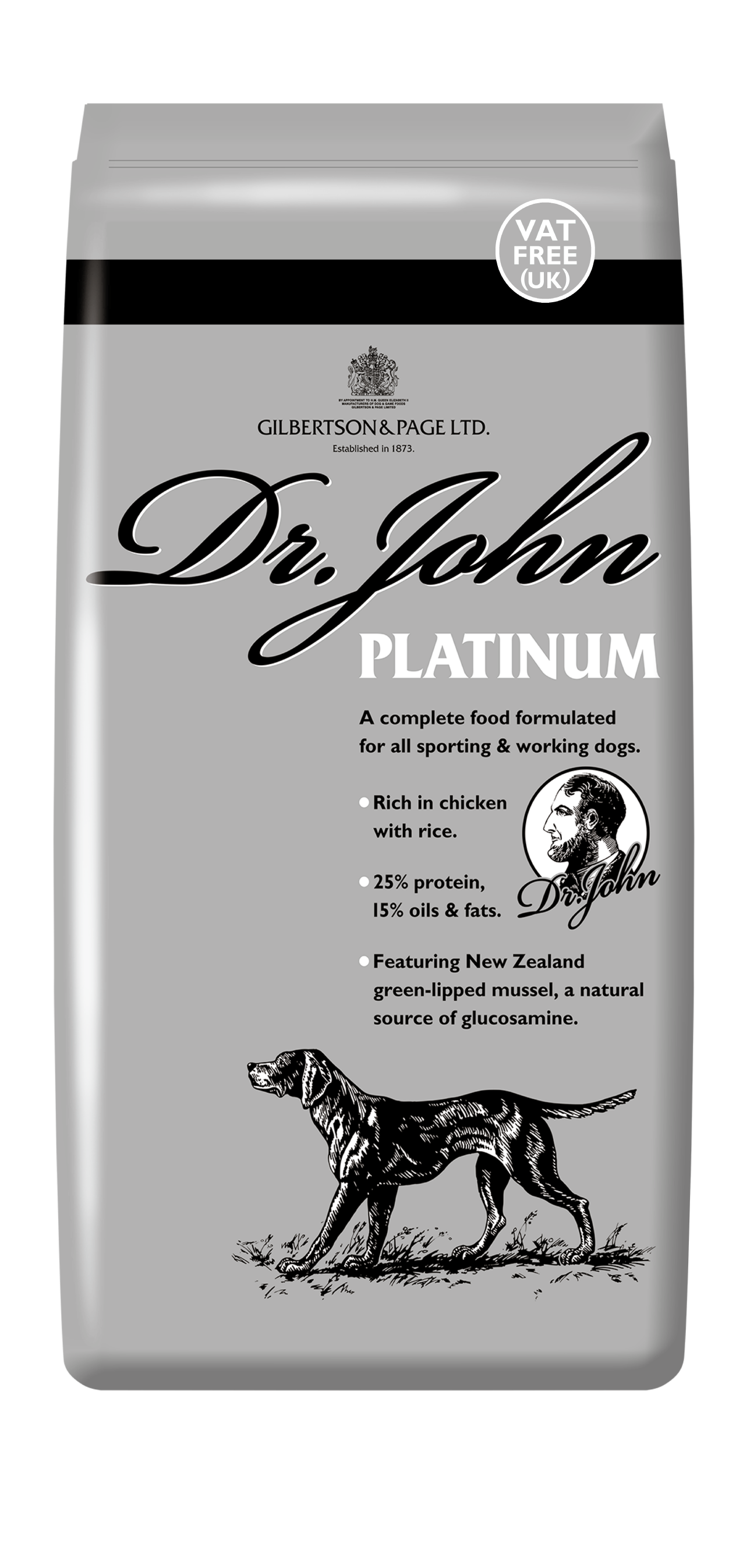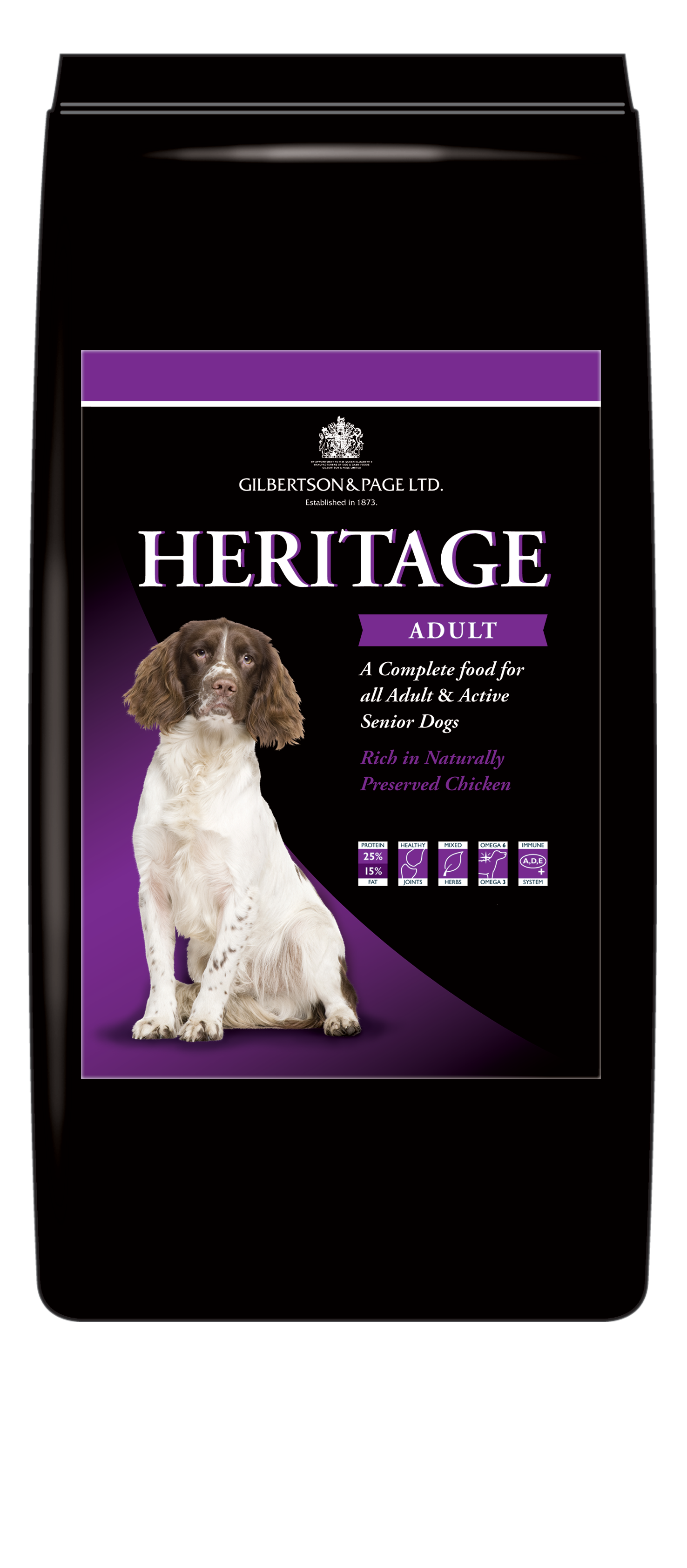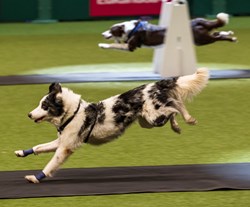Creating A Champion – Show Dogs Are Working Dogs Too
16/01/2014
With Crufts soon to be upon us (and we look forward to seeing everyone as usual on the Gilbertson & Page stand), we thought it would be good to write a few words about the world behind the glitz of showing dogs. We hope that a few people might gain an insight into the hard work and skill that’s required of both dogs and owners (and not forgetting the efforts of the organisers, especially of the less talked-about events!).
When thinking of working dogs, most of us would probably name sheep dogs, police dogs and guide dogs, but few of us would consider show dogs to be a ‘working’ dog. In fact, the common image of show dogs is of the stereotypical pampered pooch; a spoilt pet that has been primped and preened for the show ring. However, working breeds are becoming more and more popular at shows. Aside from the showing part, at most dog shows there are categories for traditional working dogs that enable these dogs to show off their abilities, skills and prime condition (agility, flyball and heelwork to music to name but a few). However it is also important to consider all show dogs, big and small, to be working dogs, due to the hard work that goes into breeding, training and looking after these champion pets.
[youtube=http://www.youtube.com/watch?v=5sQGjLurgEQ&w=560&h=315]
The path to a winning show dog starts with careful breeding to retain sought after characteristics. Agility, intelligence and characteristic features of a breed, such as tail, head shape, line of the body, colour and markings of the coat are all vital when breeding a future champion. In recent years there has been raised awareness of the health problems that can arise from irresponsible breeding, when sought after facial characteristics are so extreme that it affects a dog’s breathing or breeding to accentuate wide shoulders and narrow hips in some breeds leads to hip problems.
To discourage bad breeding practices and prioritise animal welfare vets are present at shows to inspect entrants. Any dogs deemed unwell or to be suffering are not allowed to compete. Hours of training from a young age in general obedience and in performing on the show ground ensure that show dogs behave well in front of judges and with other dogs around. Walking and running to heel, sitting on command and being compliant when inspected by judges are all main criteria here, as well as extra tricks like rolling over, shaking hands and completing obstacle courses. This area also involves a lot of work for the owner, who must remember routines, commands, sequences and other techniques that will show their dog at its best.
Health is obviously very important for any dog and show dogs must be in peak condition for show time. Judges will be looking for indicators of the general good health of the dog and, as previously mentioned, the designated show vet will disqualify unhealthy dogs from competing. Daily checks of the eyes, ears, teeth and general coat and body condition are important as well as noting any reluctance to get up and walk or limping or tiredness which can be indicative of ill health and should be investigated with a vet as soon as possible. For show dogs feeding to condition and keeping a prime weight is very important.
Dog owners will start off by following the guidelines when measuring out dog food, but will then monitor a dog’s weight and activity and adjust portion sizes gradually as appropriate. A healthy dog should have a covering of flesh over the abdomen. The ribs should not be visible, but when the flesh is pressed lightly, they should be easily felt under the hand. As a general rule, underfed dogs will be show more signs of hunger (scavenging for food and plants, less energy and ultimately weight loss) whereas overfeeding, can cause looseness or diarrhoea and eventually weight gain, acute overeating can lead to vomiting and thirst and a risk of GDV, again a vet’s opinion should be consulted in this case.
Aside from keeping a close eye on the weight of the dog, its diet also needs to be nutritionally balanced to provide the correct levels of protein, carbohydrates, fats and oils and other supplements for the individual dog’s needs. Show dog owners will choose a dog food containing all the vital elements to keep their dog in top condition and make sure the diet they choose is palatable and easily digested by their dog, (show dogs do a lot of travelling and will need to eat and sleep in new and unfamiliar surroundings).
Joint supportive ingredients are important, green-lipped mussel extract and beneficial herbs will help maintain healthy joint condition and structure alongside balanced minerals (calcium, manganese and magnesium), good vitamin levels are also important, vitamin A & D promote good vision, vitamin E can benefit skin and coat etc. The Omega 3 and 6 balance is particularly important for coat condition in show dogs, and beneficial ingredients like linseed and fish oils can also help keep coats thick and glossy. If this premium dog food is a complete dry product such as Heritage Adult, Gilpa Trinkets or Dr John Platinum, then the only supplement they’ll need is plenty of fresh, clean water available throughout the show to keep them hydrated and performing well. 

 Regular grooming of any dog keeps their coat healthy and prevents shedding, but show dog owners take grooming to the next level. A clean, neatly trimmed, regularly shampooed coat, neat claws and strong, healthy teeth all earn extra points with a show judge, who won’t miss a thing. When competition is really tough, the difference between a winner and loser could be down to these small details. Show dogs work hard and are invaluable to their owners, often winning prizes from dog food, products and treats to large cash sums. They are beloved pets too, who are well looked after as a reward for all their hard work and loyalty. It takes a large amount of time, dedication, patience and hard work from owners and their dogs to make a winning show dog.
Regular grooming of any dog keeps their coat healthy and prevents shedding, but show dog owners take grooming to the next level. A clean, neatly trimmed, regularly shampooed coat, neat claws and strong, healthy teeth all earn extra points with a show judge, who won’t miss a thing. When competition is really tough, the difference between a winner and loser could be down to these small details. Show dogs work hard and are invaluable to their owners, often winning prizes from dog food, products and treats to large cash sums. They are beloved pets too, who are well looked after as a reward for all their hard work and loyalty. It takes a large amount of time, dedication, patience and hard work from owners and their dogs to make a winning show dog.
Your can view our range of food here



